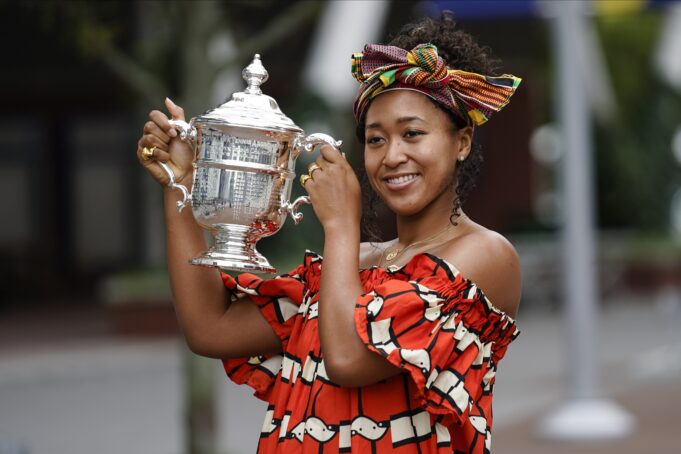Tennis player Naomi Osaka declared to the world that she would not be doing any press during the French Open, a major tennis tournament, due to her mental health. Not long after, Grand Slam organizers slapped her with a $15,000 fine and threatened her with expulsion if she refused to participate in media interviews. Instead of subjecting herself to something that could possibly further harm her mental health, she withdrew from the tournament altogether.
“I’ve often felt that people have no regard for athletes’ mental health and this rings very true whenever I see a press conference or partake in one. We’re often sat there and asked questions that we’ve been asked multiple times before or asked questions that bring doubt into our minds and I’m just not going to subject myself to people that doubt me,”
Ms. Osaka expressed in her initial statement. The Black Haitian and Japanese tennis star witnessed many clips where athletes break down after a loss and doesn’t understand kicking people when they’re down. She withdrew from the French Open May 31.
After the statement caused a stir, she released another statement going into detail about her experience with mental health. “The truth is that I have suffered long bouts of depression since the US Open in 2018 and I have had a really hard time coping with that. Anyone that knows me knows I’m introverted, and anyone that has seen me at tournaments will notice that I’m often wearing headphones as that helps to dull my social anxiety,” she explained.
Through her words, she has garnered the support of many prominent athletes and celebrities who are voicing their support, and she has opened a larger conversation on mental health.
NBA player Stephen Curry of the Golden State Warriors responded to Ms. Osaka via Twitter, saying, “You shouldn’t ever have to make a decision like this-but so damn impressive taking the high road when the powers that be don’t protect their own. major respect @naomiosaka.”

Former professional basketball player Lisa Lesley replied, “It’s so sad that we are in a time that when a young person tells you they need help or a break, people respond with anger and a lack of support! I stand with you @naomiosaka Your mental health is just as important as your physical health.”
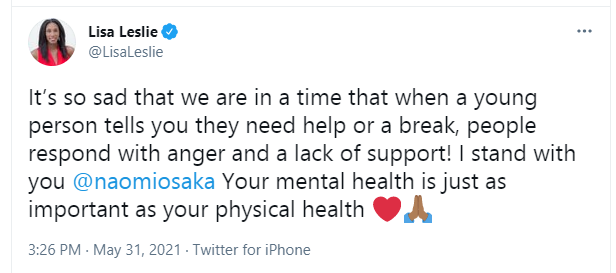
NFL player Tyler Lockett of the Seattle Seahawks commented, “As human beings we have to do better at supporting each other. Mental health is real. And to fine a person for trying to protect their peace is not giving somebody a safe place to be a persons best self. I support you Naomi.”
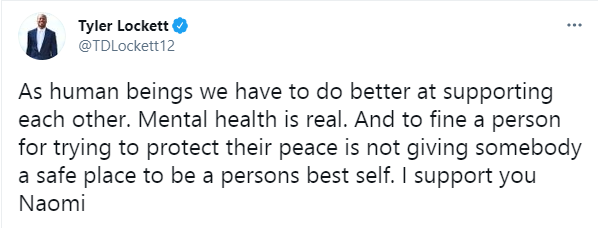
Tennis star Serena Williams expressed her support for Ms. Osaka during a press interview. She said she had walked into many press conferences feeling anxious or concerned.
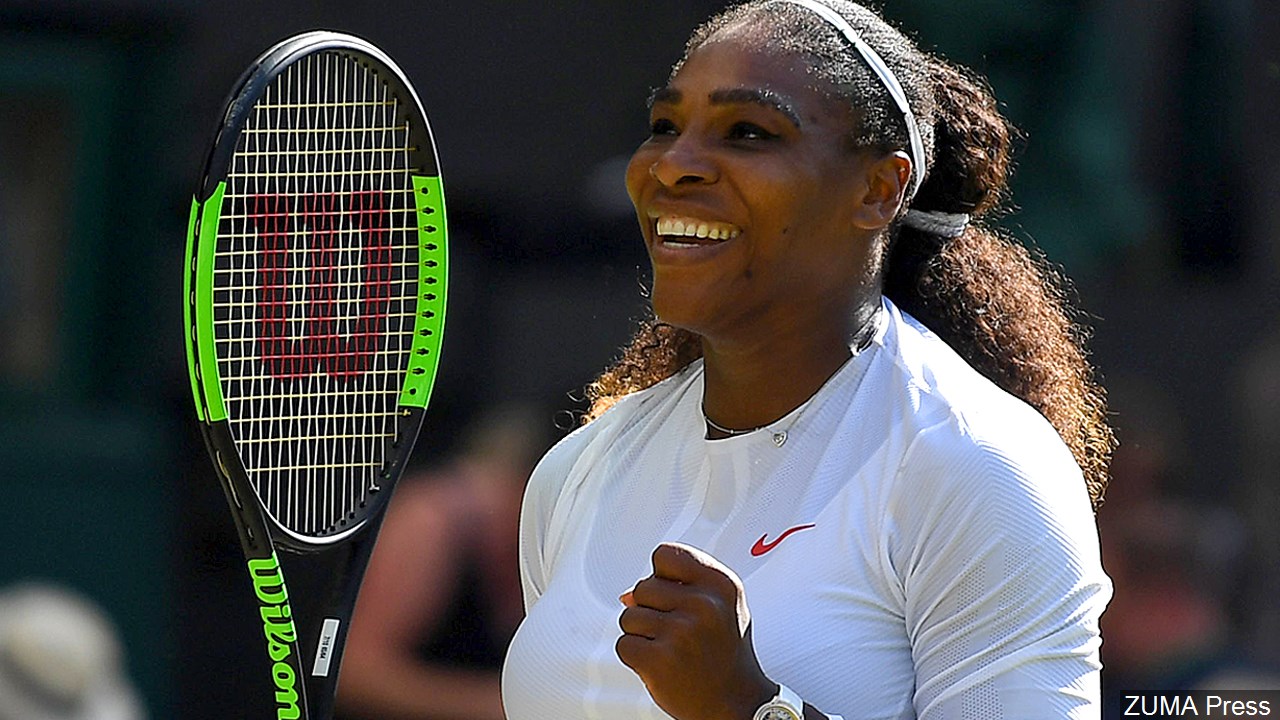
“The only thing I feel is that I feel for Naomi. I feel like I wish I could give her a hug because I know what it’s like. Like I said, I’ve been in those positions,” Ms. Williams said. “We all have different personalities, and people are different. Not everyone is the same.
I’m thick. Other people are thin. Everyone is different and handles things differently. You just have to let her handle it the way she wants to, in the best way she thinks she can, and that’s the only thing I can say. I think she’s doing the best she can.”
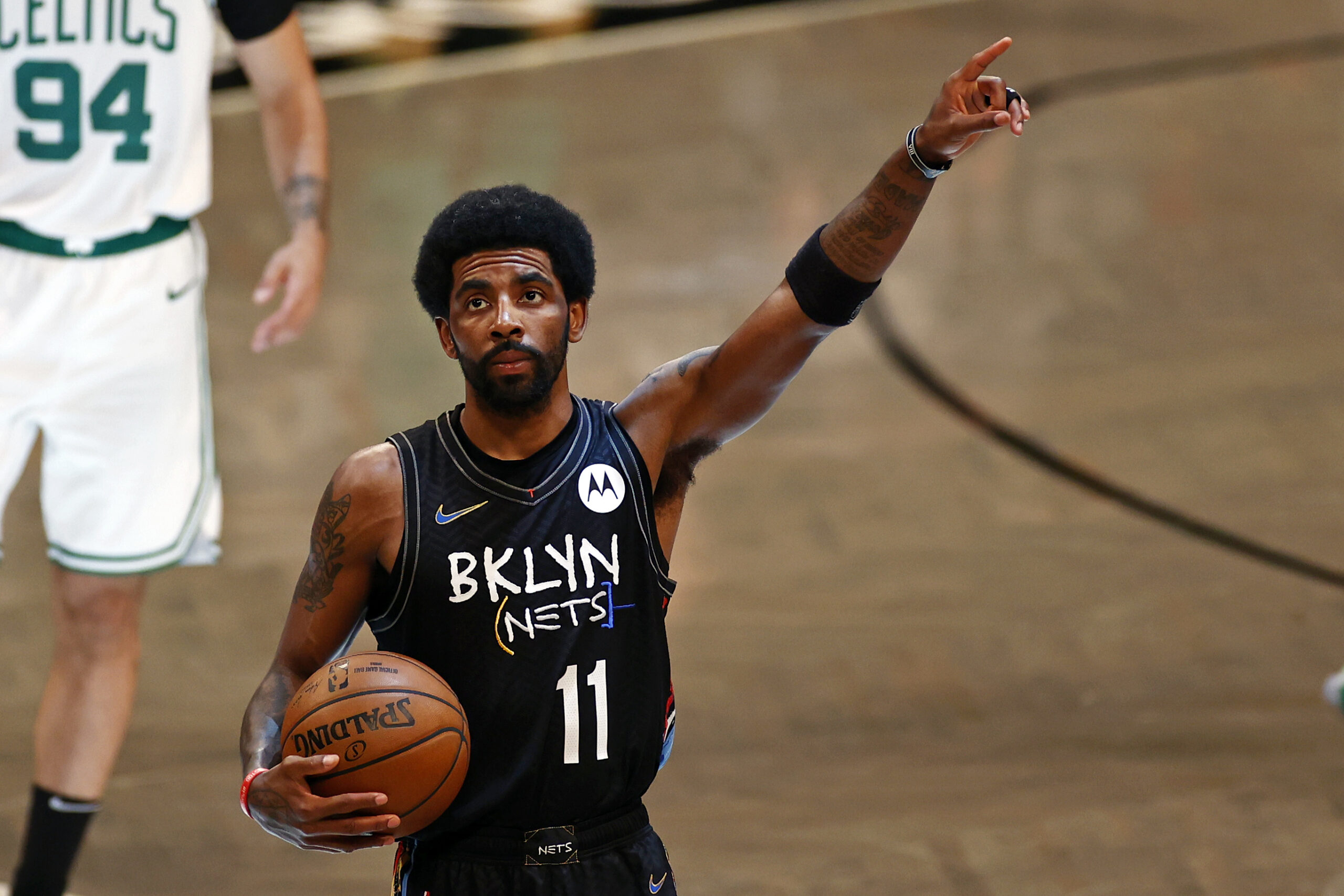
Despite the show of support, she also faced ridicule and scorn from critics accusing her of being a “privileged athlete.” But Ms. Osaka isn’t the first athlete to face backlash after prioritizing her mental health over the game. In January, NBA player Kyrie Irving of the Brooklyn Nets took a mental health day, missing a game with the 76ers. During a Zoom with reporters, he teared up, saying he was away due to “family and personal stuff.” In the past, he talked about how there are “bigger things” than basketball.
“When you have these high-stakes tournaments, no one is thinking about the stress level that Naomi or any other tennis players are going through. No one is thinking about that,” said Saaudiah Muhammad to The Final Call. “No one is factoring into the equation what it takes to be a winning player: an excessive amount of practice and not having a personal life or not being able to tend to family matters and things like that. So, there’s the pressure to win, and the pressure to just win in some cases at all costs. And that cost could be your mental health. That cost could even be risking the love of the game.”
Ms. Muhammad is a psychotherapist and social work consultant. Most of her clients are young adults of color who suffer from depression, anxiety and/or adjustment disorder. She said a sign of depression is no longer being able to enjoy something you once enjoyed, and that depression looks different for everyone. For one person, it could be not tending to themselves physically, not showering, not doing hair or makeup, but another person could be very functional, still going to work and interacting with others.

“Then there’s this general sadness. And the sadness isn’t necessarily linked to anything in particular. So we’re not talking about grief, with the loss of a loved one or friend, but there’s just this overall sadness and feeling of emptiness,” she said. That could manifest in eating too little or too much or sleeping too little or too much, she said.
“Anxiety can look like excessive worry. It can look like having a physical response to various situations that may be very common. That physical response could look like heart palpitations. It can look like stuttering. It can look like sweaty palms,” Ms. Muhammad explained.
Naomi Osaka is one of over seven million Black people who has reported having a mental illness or concerns in the past year. According to the Health and Human Services Office of Minority Health, Black Americans are 20 percent more likely to experience serious mental health problems than the general population. Despite statistics, May being National Mental Health Awareness Month and July, being National Minority Mental Health Awareness Month, Black people still deal with the stigma surrounding mental health.
“For years, there has been a stigma about mental health and wellness in the Black community. And some of that is the notion of ‘shh, don’t tell.’ Obviously, we couldn’t tell what master did to us, and so we sort of took that through generations,” said Andrea Brown, executive director of the Black Mental Health Alliance, to The Final Call. “And so we’ve not talked about what ails us. We’ve not talked about the impact on our day to day.”
Some of that day-to-day impact has been due to the regular stressors of being Black in America. “I wake up Black. That’s a stressor,” Ms. Brown expressed.
According to the Anxiety and Depression Association of America, the rate of Black people showing clinically significant signs of anxiety or depressive disorders jumped from 36 percent to 41 percent in the week after the video of George Floyd’s death became public.
Dr. Erlanger Turner, a licensed clinical psychologist, told The Final Call via email that symptoms of racial trauma can include anxiety, hypersensitivity to threat of discrimination, or difficulties with sleeping. Following the killing of George Floyd, the CDC reported “elevations in anxiety and depression symptoms among Black people. Watching these video images can lead to psychological distress for some people,” Dr. Turner noted.
Ms. Brown said Black people have yet to grieve and process what has been happening.
“We’ve not had time to process grief. People often talk about PTSD. We’re not even post; we’re still in it. So we’ve got to say, there’s got to be a clarion call that we’ve got to at least start to process our grief, process how we manage systemic racism, process how we manage our self-care and define it,” she said.
Dr. Danielle Busby, a licensed clinical psychologist and the vice president of professional relations for Black Mental Wellness, told The Final Call that people can be triggered by smells, visual images, sounds and a list of other factors.
She said it’s important for people to assess where they are and name the symptoms they are experiencing in order to get a sense of control. She posed the questions folks should consider: Do I need to make sure I’m exercising more often? Am I eating nutritional foods? Do I need to consider talking to a mental health provider?
“I think sometimes the misconception is you can’t go see a therapist, or psychologist or whatever provider you choose until it’s really bad. Like, ‘I have to be in crisis before I go seek help.’ And honestly, as a provider, I much prefer when someone’s coming in with a more proactive approach,” she said.
“‘I want to come before it gets really bad’ or ‘I want to come talk because I recognize it’s been a really tough year’ or ‘I want to come talk because I see that I have some really tough things coming up, like I’m changing a job, I just had a breakup,’ I don’t know, ‘I’m dealing with a financial situation’ or whatever. Getting really intentional in those moments when you know you could use that extra support and taking the steps to get it.”
Dr. Busby explained that because Black people have a lot of reasons to mistrust the health community because of mistreatment, when seeking out a provider, it’s important to interview them and see if they are a good fit. She said people can also tap into creative ways of expression, such as writing, journaling, drawing, music, etc.
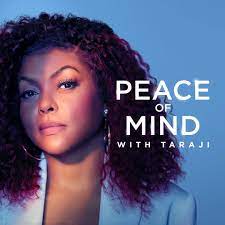
Actress Taraji P. Henson has also been outspoken about mental health in the Black community. She co-founded The Boris Lawrence Foundation in 2018 with her friend Tracie Jade. The nonprofit organization is named after her father who struggled with mental health. The duo also hosts a weekly Facebook program, “Peace of Mind with Taraji.”
“I’ve watched her suffer from anxiety since we were young,” Ms. Henson referring to her friend Ms. Jade, told USA Today in an interview in December 2020. “And then to grow myself and then find out I’m suffering from anxiety and depression—we had these deep conversations, we understood that there was a need in the community, or lack thereof, (for) knowledge about mental health,” she stated.
Their goal through the foundation is to end the stigma surrounding mental health in the Black community. The foundation’s website, borislhensonfoundation.org provides a directory of mental health providers and programs serving the Black community and other resources.
Ms. Brown said Black mental health matters because Black people matter. She said, Naomi Osaka’s mental health is being disregarded because White America sees her as a price tag. But she took a stand for radical self-care, which Ms. Brown described as being able to voice that something is going on.
She said Ms. Osaka has started a larger conversation on how to change the narrative and to end the stigma surrounding mental health in the Black community and that ending the stigma starts with educating Black children from a young age.
She advised Black people who are suffering from mental health issues to find a clinician through resources like the Black Mental Health Alliance, to join emotional emancipation circles, to possibly start mental health clubs, to put up billboards and to have workshops.
“I think it’s going to take a real convening around a Black agenda for mental health,” she said.












